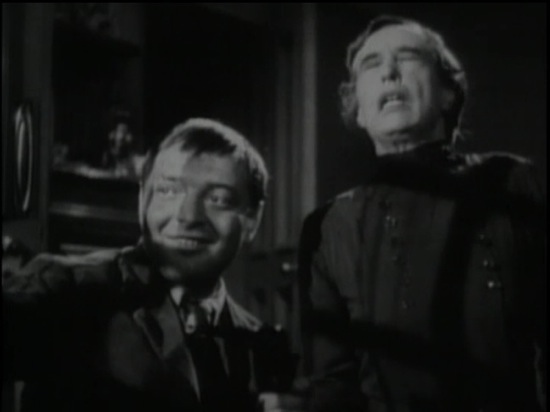The Man Who Knew Too Much

Fans of Peter Lorre want to see him triumph in his efforts, particularly when he’s the villain. (Except, perhaps, in M, where he’s a monster hunted by good guys and bad guys alike.) This is due to Lorre’s characters’ ironic self-awareness, their longing to connect with intellectual equals (even if they’re ideological adversaries), and a kind of idealism that buoys them in every situation. In a world dominated by narrow-minded thugs, he’s an intellectual, a utopian, an aesthete, a cosmopolitan; I can relate.
In Hitchcock’s original The Man Who Knew Too Much, Lorre portrays Abbott, ringleader of a group of assassins looking to provoke a world war. During a siege of his hideout, Abbott retains his aplomb, which makes him an inspiring figure — until his adjutant, Agnes (Cicely Oates, who died that same year) is shot.
The blocking here is pure Hitchcock: tragic and comic at precisely the same instant. After this moment, Abbott is transformed into just another thug, and the audience begins to root for the thuggish cops.

